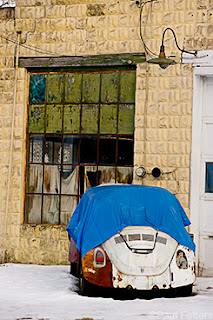Caring as a Business Strategy, by Nancy Dorrier
Doug
came out in the hall from the lunch buffet at the fancy hotel where we were
leading a program and said, “I have to tell you something.” He had tears in his eyes. He had been tearing up already while leading
this program for “Acme Manufacturing” executives. Before we met the participants, we thought
they were big-dogs, but then we found out they were people. We always tear up
when we start loving people, finding they are no longer strangers.
“I
need to tell you something. I want you to know that I have never been so taken care of: lozenges, water, your getting the flip charts
up on the wall, managing the hotel personnel. Susie wants
to come talk theory on the breaks and instead of talking, you’re listening to what
I need, leading from the back. I am so moved. I don’t
have to be the only one watching out for my well-being. You have my back. I want all of our
consultants to have this kind of support from the back of the
room. I want you to write up how to do what you are doing. I want you to teach people how to look.”
I
remembered Lila once saying, “I am a better program leader because of your
being quiet, sitting there, tracking what is happening, being a kind of space.”
Mary,
leading a retreat one weekend several years ago, said the same thing and started
asking me what she should cover next as I was washing her grapes.
Happily
and naturally.
I
learned it from my mother. I learned it from watching her take care of my
father and he her. Looking at the whole
of a party. Seeing when someone’s water
glass is empty. Offering another
serving. Passing the bread on to the
next person, not just saying no thank you and not passing it. We were taught that basic attention to others
when we were six years old. Don’t just
serve yourself first; serve the other first.
Don’t start eating until we are all served. Hold the door. Say yes ma’am and yes sir. And no thank
you. I am so glad to be here and so glad
to meet you. Thank you for inviting
me. We learned to say it whether we
meant it or not.
I
loved Doug in that moment. For giving me
the distinction of service that I was blind to.
I was just doing it.
A
week later, at dinner, I told Gary and Laura that that was the best
acknowledgement I could get-- not necessarily the thank you, but noting the difference
service makes and distinguishing that it works, really works, for us to take
care of people, to care for people.
The
Acme team went to Joe’s house for dinner and raised their glasses to each
other. They stood up on the big coffee table and said who they were as leaders.
Joe
went first and said, “Who I am as a leader is the possibility of trust,
respect, service, learning and continuous improvement at Acme. I am responsible
for the values of Acme being alive and well. Now I want to appreciate Anshu.” Then he said 10 things he loved about her,
and she grinned and blushed under her brown Indian skin. Then, with a hand from Joe, Anshu got up on
the coffee table and said “Who I am as a leader is a revolutionary who
challenges the status quo,” and made a toast to another, who then got up. And
it went on and on.
Joe’s
wife turned to me and said, “I could do this all night.”
When
people feel cared for, when they know someone has their back, it gives them the
freedom to care--about their companies, about the people they work with, about
people who don’t have to be strangers.
Follow Dorrier Underwood on LinkedIn.




Comments
Post a Comment
We appreciate your input and look forward to your comments. We review messages prior to posting.